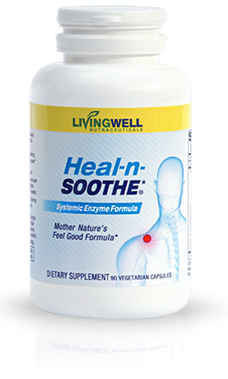 When you think about coming down with an infectious disease, symptoms like fever, fatigue, muscle aches and loss of appetite probably come to mind.
When you think about coming down with an infectious disease, symptoms like fever, fatigue, muscle aches and loss of appetite probably come to mind.
Rarely would most people assume that an infection could lead to a loss of memory, but it’s actually already been shown that severe infections can lead to cognitive impairment in the elderly.
Infections can even trigger a decline in people with brain conditions like dementia, including Alzheimer’s disease.
Surprising new research adds even more support for the link between infections and memory, with results showing that exposure to many common infections may increase your risk for memory decline — even if the infections were so mild you were never sick.
The study, presented at the American Stroke Association’s International Stroke Conference 2014, found that people who had measurable antibody levels for several common infections (which is evidence of past exposure) performed worse on tests of cognitive performance. Memory, mental processing, abstract thinking, planning and reasoning were all affected.[i]
Examples of common infections linked to memory decline were:
- Chlamydia pneumonia
- Helicobacter pylori
- Cytomegalovirus
- Herpes simplex viruses 1 and 2
Why might infections mess with your brain function?
The researchers of the current study couldn’t say for sure, but they suspected it could be due to an immune system response to the infection or a result of direct damage (that has yet to be uncovered). They also pointed out that infections lead to an increase in inflammation, which separate research showed might impair your brain in a different way.
Inflammation Damages Your Ability to Form Memories!
Research published in the journal Biological Psychiatry found that inflammation following an infection damages your brain’s ability to form spatial memories.[ii] Following inflammation, the study found a reduction in glucose metabolism in the brain’s memory center (called the Medial Temporal Lobe, or MTL), which disrupts neural circuits crucial for learning and memory.
It’s already known that inflammation impairs cognitive performance and is implicated in the progression of neurodegenerative disorders,[iii] but researchers explained the importance of their new findings:[iv]
“Our findings suggest that the brain’s memory circuits are particularly sensitive to inflammation and help clarify the association between inflammation and decline in dementia … If we can control levels of inflammation, we may be able to reduce the rate of decline in patients’ cognition.”
As far as boosting your memory and overall cognitive function goes, it may be then that fighting inflammation is one of the most important — yet rarely suggested — steps. This makes perfect sense, since Alzheimer’s disease has actually been described as the result of chronic inflammation destroying your brain cells![v]
If you have some or a combination of the following, you could have unchecked inflammation in your body:
- Body aches and pains
- Congestion
- Frequent infections
- Diarrhea
- Dry eyes
- Indigestion
- Shortness of breath
- Skin outbreaks
- Swelling
- Stiffness
- Weight gain or obesity
How to Fight Inflammation and Infections Naturally
Lack of sleep, stress and exposure to environmental toxins (like pollution or household chemicals) certainly contribute to chronic inflammation, but what you put in your body — your food and drinks, for instance — also play a major role. Because of this, a comprehensive anti-inflammatory diet, consisting of inflammation-fighting food, drinks and herbal supplements is crucial to keeping inflammation in check. As a bonus, this type of healthful diet will also boost your immune function to help you avoid infections of all kinds.
 Proteolytic enzymes also have an unsurpassed ability to fight chronic inflammation, operating on a “lock-and-key” basis, which means they can recognize good prostaglandins from bad prostaglandins (prostaglandins are hormone-like substances involved in inflammation). When proteolytic enzymes’ teeth fit into a ‘bad’ prostaglandin, they dispose of it to let the good prostaglandin come in. Plus, these enzymes work throughout your entire body to help it fight inflammation.
Proteolytic enzymes also have an unsurpassed ability to fight chronic inflammation, operating on a “lock-and-key” basis, which means they can recognize good prostaglandins from bad prostaglandins (prostaglandins are hormone-like substances involved in inflammation). When proteolytic enzymes’ teeth fit into a ‘bad’ prostaglandin, they dispose of it to let the good prostaglandin come in. Plus, these enzymes work throughout your entire body to help it fight inflammation.
Proteolytic enzymes also recognize viruses through their special lock-and-key mechanism — just like they recognize the prostaglandins. This may help support your immune system (i.e. fight infections) so you get sick less often and, as the featured study suggested, could potentially help support your cognitive function, including your memory if it helps you avoid infections.
Proteolytic enzymes have even been used in Europe since 1974 to treat cold sores and other viral conditions (that’s even before people knew what they were called!) — they work that well!
Your body can make some proteolytic enzymes, but if you’re past your 20s, your supply of proteolytic enzymes is likely not what it used to be; if you’re past 40, there’s a good chance you’re already deficient. Taking a proteolytic enzyme supplement is therefore a very smart move.
Fortunately, there’s Heal-n-Soothe, the best proteolytic enzyme formula to replenish your body’s supply of vital enzymes, fight inflammation and act as your personal brain-boosting armor against infections.

